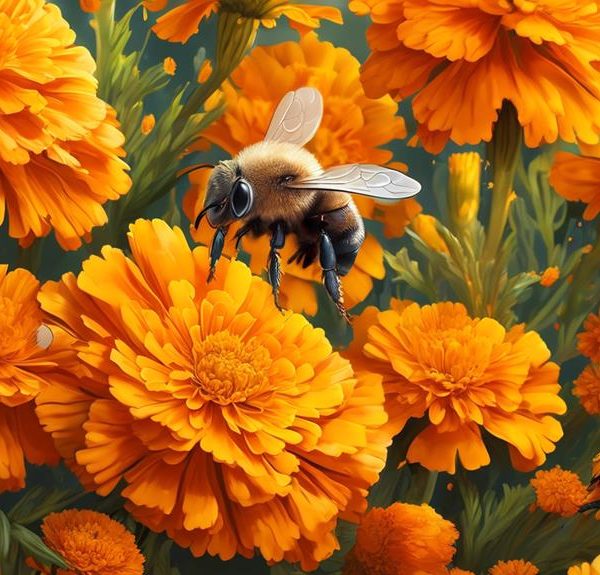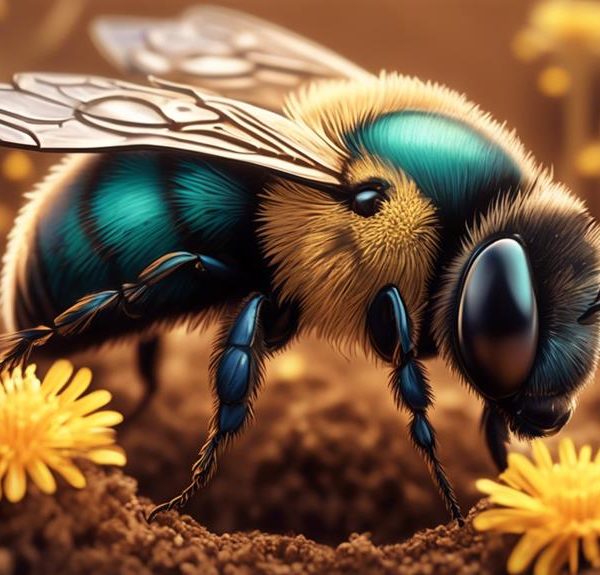Find out how Mason Bees' hydration needs are challenging our understanding of these essential pollinators.
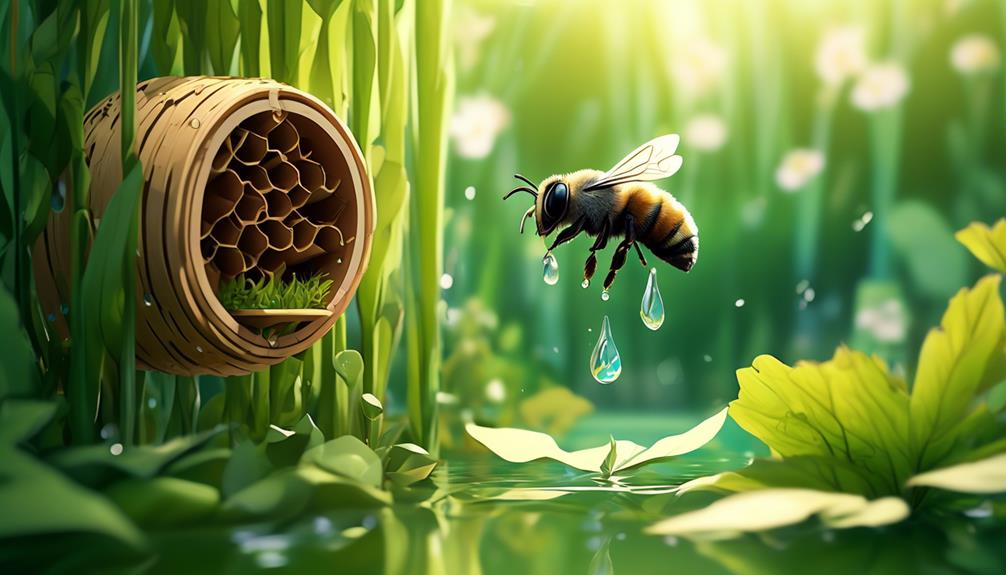
Do Mason Bees Need Water?
Isn't it intriguing how the small, seemingly insignificant creatures of our world are often the ones with the most fascinating survival mechanisms?
Take the Mason Bee, for example. You might be wondering if these industrious pollinators, like so many other living organisms, rely on water for survival. The answer isn't as straightforward as you might think.
While water plays a crucial role in the life cycle of many insects, the exact hydration needs of Mason Bees are a topic of ongoing research and discussion.
Stick around, as we're about to unravel the intriguing nuances of Mason Bee hydration, which could potentially challenge our understanding of these vital pollinators.
Key Takeaways
- Mason bees require water for hydration, energy, and stamina.
- Water is crucial for their metabolic functions and regulating body temperature.
- Providing easily accessible water sources, such as shallow dishes with landing pads, is important for Mason bees.
- Water is essential for constructing and sealing nests, as well as aiding digestion and nutrient absorption.
Understanding Mason Bees' Lifestyle
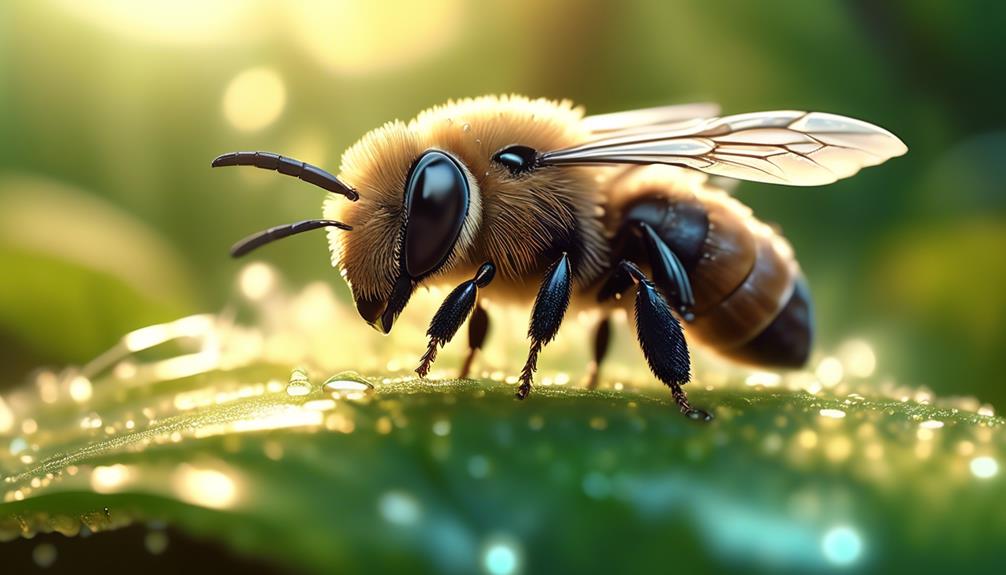
Diving into the daily routine of Mason bees, you'll find a fascinating lifestyle deeply tied to their environment and intricate mating, nesting, and pollination behaviors. They're solitary creatures, each female mating and constructing her nest independently. These nests, often built in hollow stems or crevices, consist of individual cells made from mud, hence their name.
As dawn breaks, Mason bees start their work. Females gather pollen and nectar from flowers, depositing it in each cell. A single egg is laid atop the provisions, then the cell is sealed with mud. This process repeats until the entire nest is filled.
The eggs hatch into larvae, which feed on the stored provisions. After undergoing metamorphosis within their individual cells, the adult bees emerge, ready to start the cycle anew.
They're also critical pollinators. While collecting nectar and pollen, Mason bees inadvertently transfer pollen grains from flower to flower, aiding in plant reproduction. They're highly efficient, with just a few Mason bees able to pollinate an area that would require hundreds of honey bees.
It's a life cycle tightly woven with the rhythm of nature, showcasing the Mason bee's pivotal role in their ecosystem.
Mason Bees and Their Hydration Needs
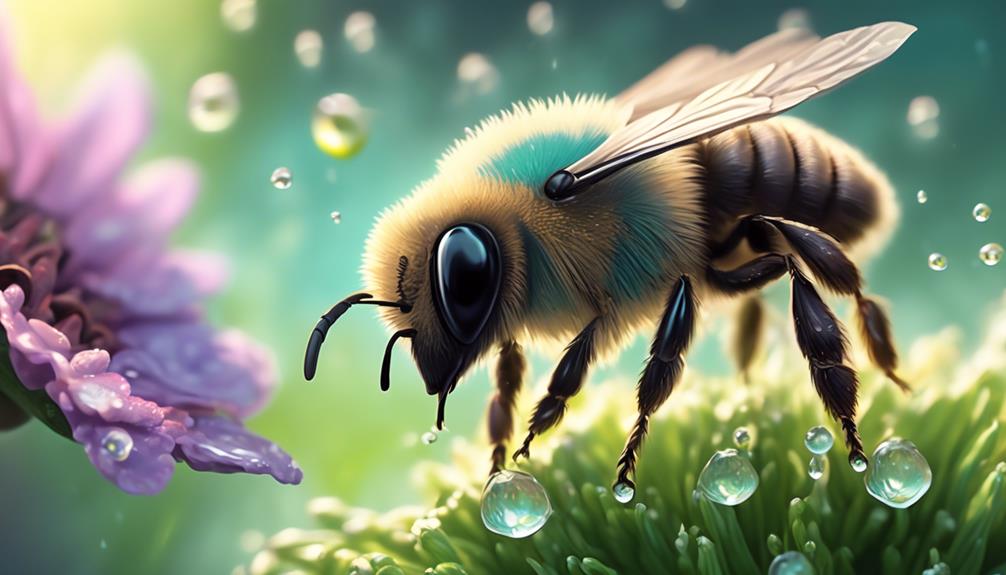
Just as they need nectar for energy, Mason bees also require a reliable source of water to sustain their daily activities and physiological processes. You might wonder why these industrious insects need water, given their small size. The answer lies in their biology and lifestyle.
Water plays a key role in a Mason bee's life. It's crucial for hydration, which they need for energy and stamina during their busy, flower-visiting days. Additionally, it's essential for their metabolic functions. Like other living organisms, Mason bees use water to transport nutrients and eliminate waste from their bodies.
Furthermore, female Mason bees use water in nest building. They mix water with soil to create a mud-like substance for constructing and separating the brood cells in their nests. Without a nearby water source, the bees' nest-building activity can be significantly hampered.
Lastly, water also helps in regulating their body temperature. By consuming water, they can cool themselves down during hot days. Hence, providing a shallow water source in your garden not only attracts these beneficial pollinators but also supports their health and productivity.
Importance of Water for Mason Bees
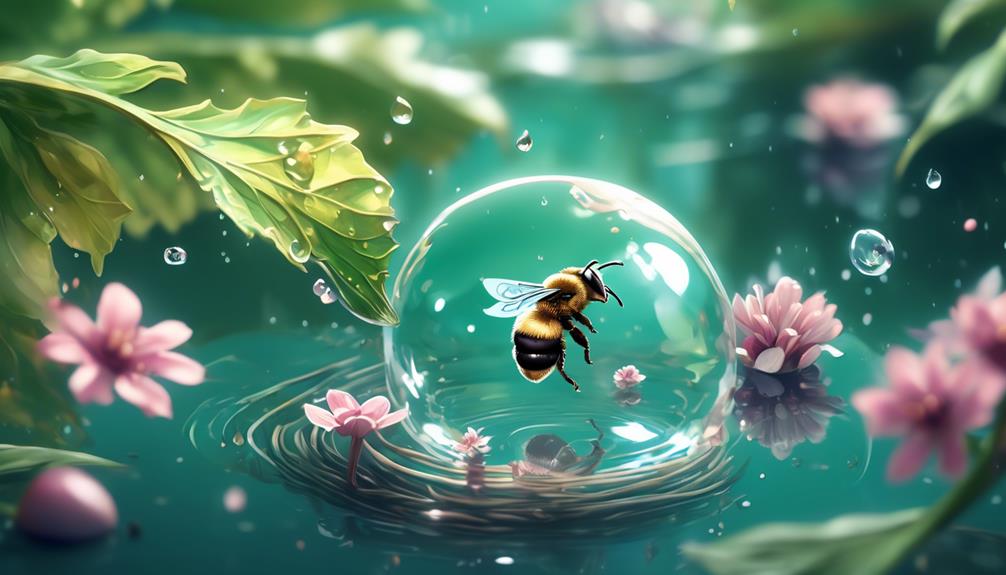
Understanding the role of water in a Mason bee's life underscores its critical importance for their survival and productivity. Without water, these industrious creatures wouldn't be able to carry out vital functions that ensure their well-being and the propagation of their species.
Water's Role | Impact on Mason Bees | Emotional Perspective |
|---|---|---|
Hydration | Essential for basic bodily functions | Without water, bees can't survive |
Mud Creation | Used for constructing and sealing nests | Bees need water to build safe homes for their offspring |
Cooling Nests | Helps regulate nest temperature | Water provides comfort and protection from extreme heat |
Food Source | Nectar, a bee's main food, contains water | Bees rely on water to feed themselves and their young |
Metabolic Regulation | Aids in digestion and nutrient absorption | Water is integral to bees' health and vitality |
You see, water isn't just a 'nice to have' for Mason bees – it's a necessity. It's the foundation of their daily life and work. You can't imagine a day without water; neither can they. Their survival, their productivity, their very existence hinges on this crucial resource. So next time you see a Mason bee, remember, they need water just as much as you do.
Providing Water for Mason Bees
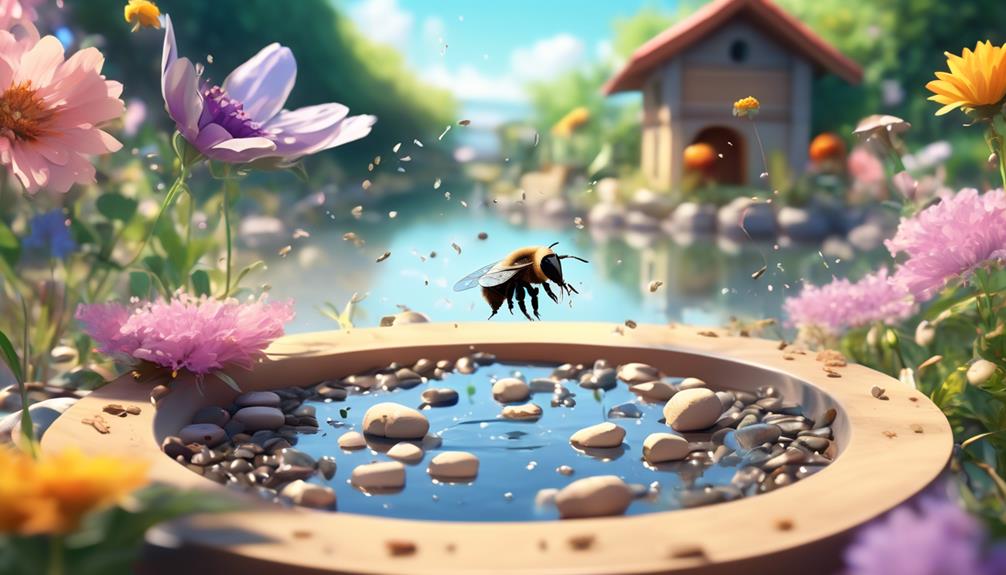
In order to support the Mason bees in your area, it's crucial that you provide easily accessible water sources for them. This isn't as complicated as it sounds; a shallow dish filled with water, preferably placed in a sunny spot, will suffice. However, it's important to add small stones or twigs into the water. These serve as landing pads, preventing the bees from drowning.
You should consistently replenish the dish as the water evaporates, ensuring that the water source remains constant. Remember, Mason bees, like other pollinators, rely on the availability of fresh water for survival. It's not only used for hydration but also for regulating their body temperature and aiding in digestion.
If you're managing a larger bee population, consider creating a mini pond. This involves digging a shallow hole, lining it with a waterproof material, and filling it with water. Again, don't forget to add pebbles or twigs for landing. The pond's edges should be gently sloping to facilitate easy access.
Providing water for Mason bees requires minimal effort, but the impact it has on their survival and productivity is significant. By doing so, you're playing a crucial role in maintaining the health of your local ecosystem.
Impact of Dehydration on Mason Bees
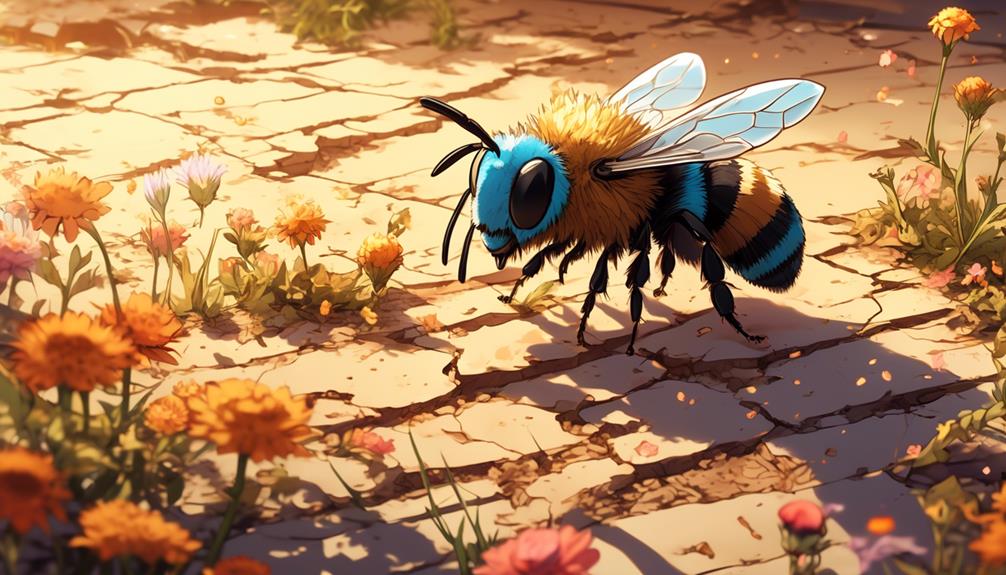
Dehydration can significantly affect the health and productivity of Mason bees, leading to various physiological problems and even death. When you deprive these bees of water, they're unable to regulate their body temperature or digest their food properly. This can cause their energy levels to plummet, impairing their ability to forage or reproduce and ultimately leading to a decline in the population.
Water is also crucial for bee larvae development. Without it, the larvae may fail to thrive, leading to a high mortality rate. Moreover, dehydration can make Mason bees more susceptible to diseases and parasites, further threatening their survival.
Furthermore, Mason bees need water for their mud nests. Dehydration can hinder nest-building, which in turn affects the bees' reproduction cycle. Without suitable nests, they can't lay eggs or protect their offspring.
In short, dehydration poses a significant threat to the health, productivity, and survival of Mason bees. As a steward of these vital pollinators, it's crucial for you to ensure that they have access to fresh water. This won't only help them survive but also thrive, contributing to the biodiversity of your garden and the overall ecosystem.
Conclusion
In summary, you've learned mason bees do indeed need water. Not only is it crucial for their survival, but it also plays a pivotal role in their nest building process. Neglecting to provide them with a proper water source can lead to dehydration, severely impacting their health and productivity.
So, remember to keep a small water dish or damp soil nearby your bee house. In doing so, you're actively contributing to the wellbeing and sustainability of these remarkable pollinators.

